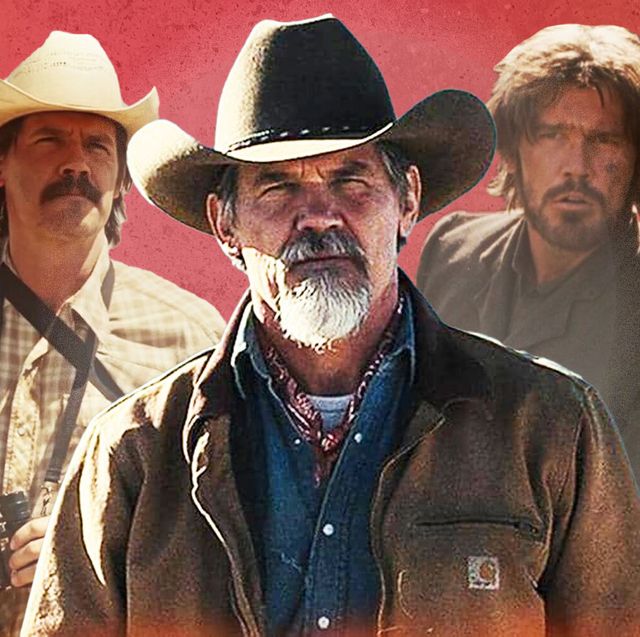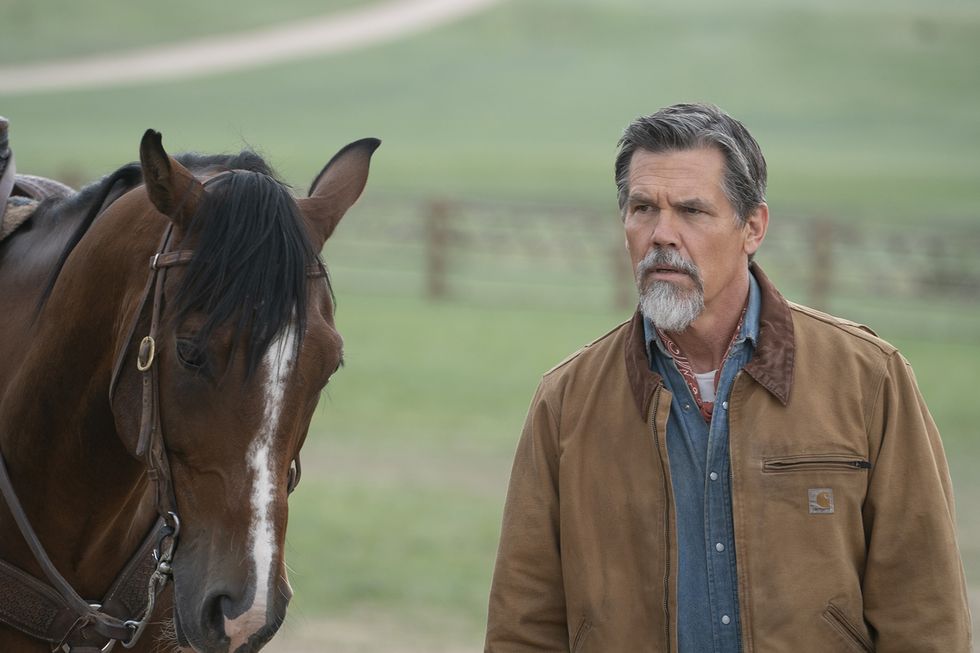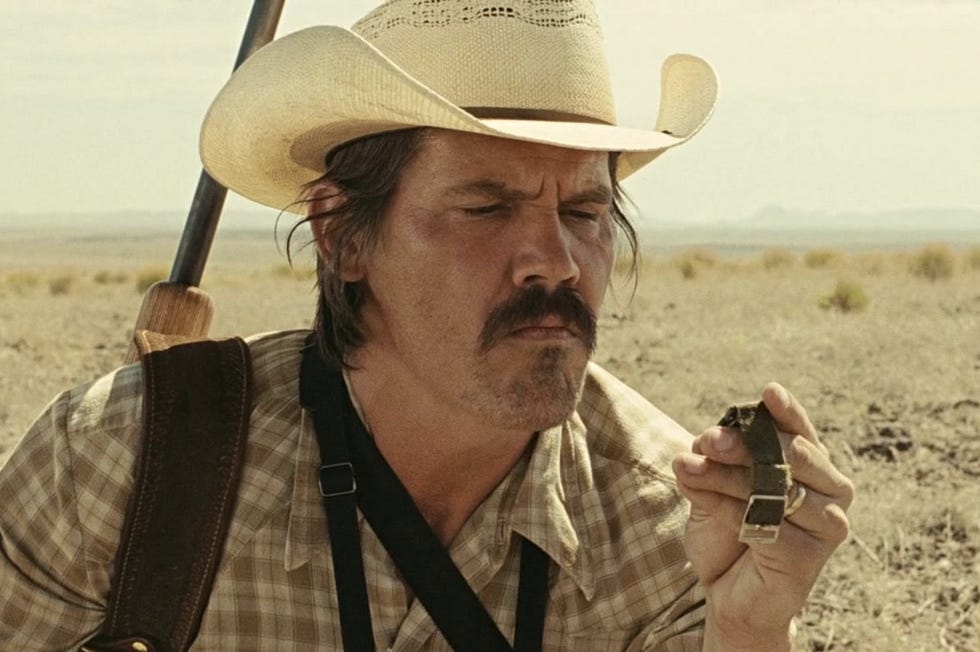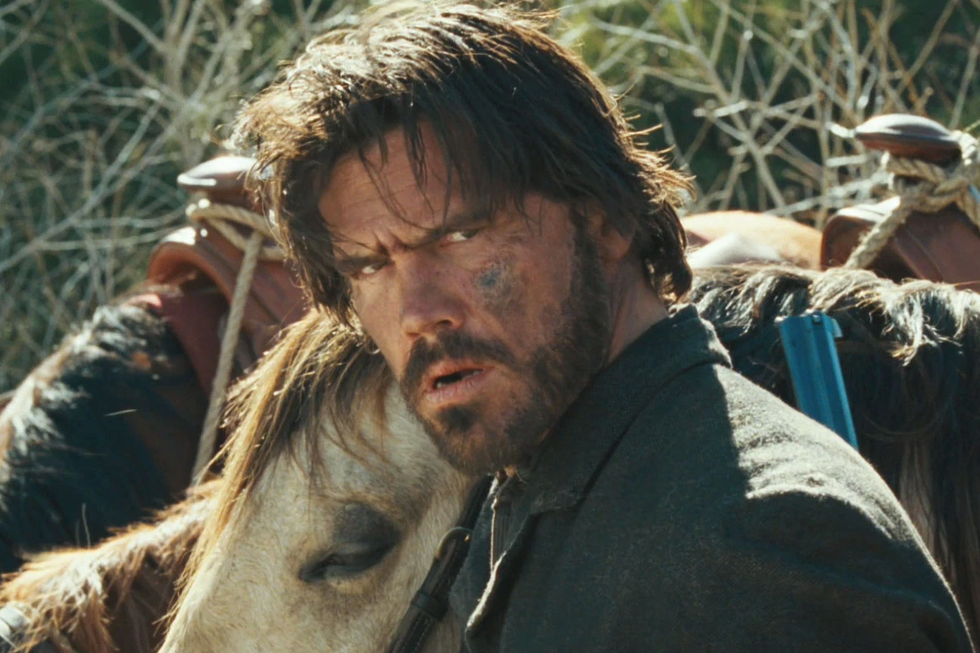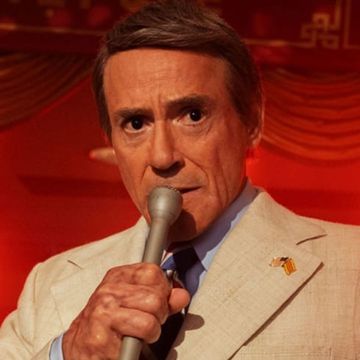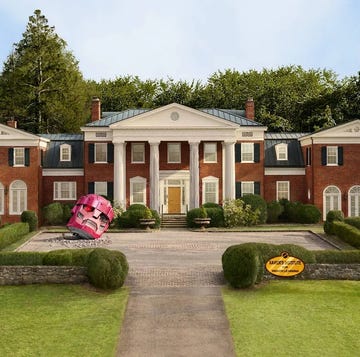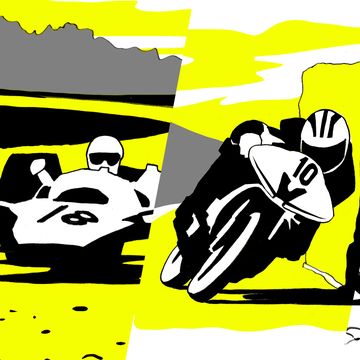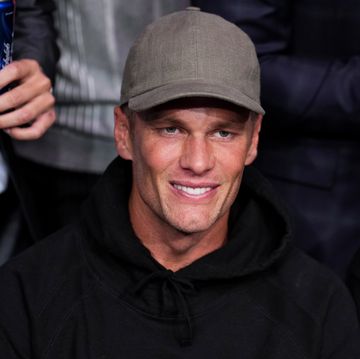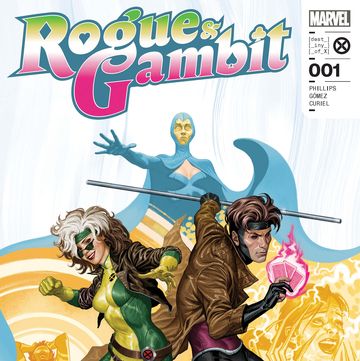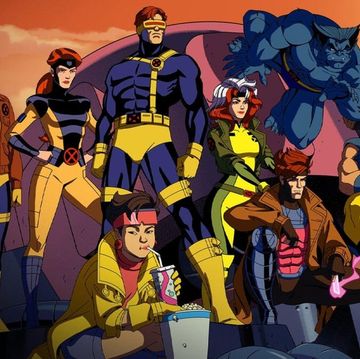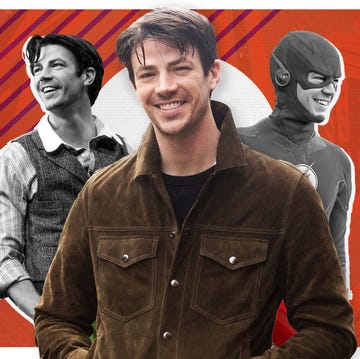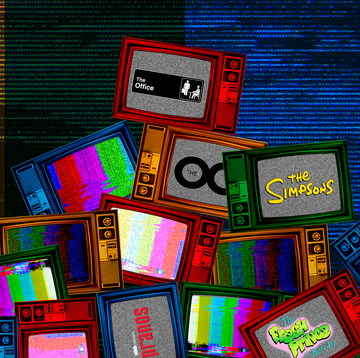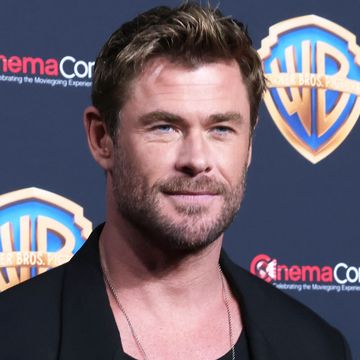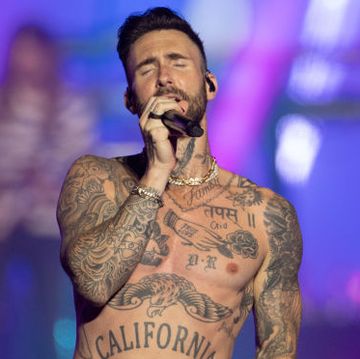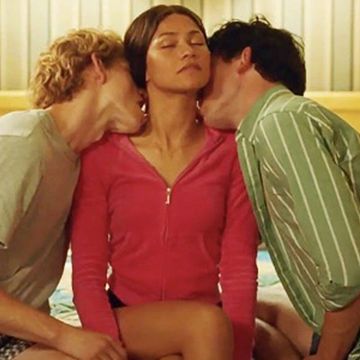There's a scene in No Country for Old Men, Joel and Ethan Coen's 2007 Texas-set neo-Western Best Picture-winning film where Llewellyn Moss (Josh Brolin), is lying in bed with his eyes wide open. And although this is early on in the movie—still in the first part of the first act—you know exactly what's going through Llewellyn's restless mind. He's just seen the aftermath of a drug deal gone wrong. While he was just shameless enough to take the giant satchel of blood money he came across, he wasn't quite shameless enough to let himself leave the man who specifically begged him for water to die. All in one moment, we see this on the face of a torn Brolin, and so he returns to the scene of the carnage—setting all the following events of the film in action. Later, when this decision has proven to send him into a hell storm of chaos and violence, we see him once again lying in bed looking straight up. There's a lot of quiet contemplation going on.
We're not going to get into a full summary of those No Country for Old Men events; it's a 15-year-old movie, and if you somehow haven't seen it yet, it's time to change that. But we are going to talk about how it wasn't just the events of the movie being set into action, but rather a 15-year (and counting) journey of its lead actor. No Country wasn't the first time Brolin entered a Western-adjacent world (he played Wild Bill Hickok in 67 episodes of a show called The Young Riders that aired on ABC between 1989 and 1992), but it was the first in a series of roles that stands as connecting tentpoles through the latest, and most fruitful, portion of his career. And while his star has indeed grown in the last decade playing superhero roles in major franchises (Cable in Deadpool 2 and, more notably, the villain Thanos in the Marvel Cinematic Universe), it's his roles in this not-quite-connected Western universe that make the most of his unique and versatile charm.
We'll call these projects, and the 54-year-old's foray into the varying forms of these worlds, the ever-expansive Josh Brolin Westernverse.
Part of what makes this journey feel special is that Brolin has shown the ability to play different archetypal roles within these worlds. The Amazon Prime Video series Outer Range, the latest and perhaps most ambitious venture into the Brolin Westernverse, finds the star in his version of the Kevin Costner Yellowstone role, but with a wrinkle; while Outer Range and Yellowstone are both shows about ranching families with movie stars in the lead, it takes less than one episode to see just how vastly different they are. Outer Range gives Brolin all the room he wants to brood, monologue, and smolder, but there are action, thriller, and, unexpectedly, sci-fi ripples that let him show off the action star bonafides that he's also proven to have in his back pocket through the years.
This sort of character—the patriarch of a proud family, a grandfather, a man of principles—comes in stark contrast to Llewellyn, the barely-moral 40-ish Vietnam vet in No Country, whom the movie not-so-subtly depicts as someone who thinks he can outrun the devil (in this case, the devil is an unstoppable hitman played by Javier Bardem).
Brolin works so well with the Coens that the next time they had the chance to make a Western—2010's more traditional adaptation of the 1800s epic True Grit—they chose to once again get him involved, this time in a much different sort of role. Here he plays Tom Chaney, a villain who essentially serves as the MacGuffin that drives the entire story into action. Chaney's name is mentioned perhaps more than any other character in the entire movie, but he's not seen until about 90 minutes in, when its revealed that the much-reviled Tom Chaney isn't some sort of evil genius, but rather a dim-witted brute with a unibrow. Brolin plays him not with that usual charisma but the opposite; how this person we see before us is the same one who built the reputation we've been hearing is almost unfathomable. And within the context of the movie, that's exactly what he needs to be. True Grit is ultimately a movie about the power of friendships and close relationships; the vengeance aspect is just a small and potentially unnecessary part of the puzzle.
There's also Jonah Hex, the superhero western misfire Brolin led that scored 12% on Rotten Tomatoes. The less we say about that one is probably the better, but still—the man's affinity for cowboy hats and boots in whatever era is clear.
A few years after the Jonah Hex fiasco, Brolin was back in Sicario, which fits the criteria of the genre when applied on a contemporary scale. He plays a CIA agent named Matt Graver, who, along with an FBI agent played by Emily Blunt and a mysterious asset played by Benicio del Toro, head into uncharted territory, on an uncharted mission, where they take on an unknown foe. The movie is set firmly in its 2015 present, but the setting—the modern-day, dry, flat-colored land of Arizona/Texas/Mexico—give it all a distinctly Western feeling, even if there's no horses to be ridden or cattle to be herded (not to mention that Sicario is written by Taylor Sheridan, co-creator of Yellowstone).
Brolin's bravado and brash confidence are defining of many modern men in positions of power, yes, but it also reflects the kind of personality we've been conditioned to expect in the classic hot-headed gunfighter of a more traditional Western. Throughout the movie, Brolin's Graver is never surprised by what happens—at every twist and turn, he's holding back answers. His cocky and relentless pursuit of exactly what he wants in Sicario is the perfect balance to Emily Blunt's naivety; he knows all too much about the brutal world they're about to enter, and she doesn't even realize that she knows literally nothing.
Through the years, Brolin has shown a willingness to embrace a genre that, while having something of a moment right now, has come in ebbs and flows and has a high bar to worthiness among die-hard fanatics. And through his choices, he seems to understand this; mixing neo-Westerns like No Country and Outer Range with traditional stylings like True Grit shows the desire to not only push the boundaries of what a Western can be but to respect the art of the form and what's come before it, while also taking chances and being creative when deciding what kind of story these projects can tell.
And coming back to something like Sicario after Jonah Hex tells us, well, one bomb isn't quite enough to scare this cowboy away from a gunfight.
